In the 70s movie The Little Girl Who Lives Down The Lane, we meet a mysterious 13-year-old girl, Rynn Jacobs who is played by Jodie Foster. As the movie begins, we learn that she has many secrets. Furthermore, we learn, too, that she lives alone, and she just wants her own home; however, she must deal with bad, dangerous neighbours, the Hallets. Notably, the movie touches on many new social issues that were kept under wraps in the 1970s. Perhaps, most shockingly, Rynn is a monster, a child serial killer.
To start, in the movie, as we learn later, Rynn is a serial killer. First, by her account, her dad died from some mysterious sounding illness, but we never learn about the true cause of her father’s death since no autopsy was ever done; furthermore, Rynn is next-of-kin and shares a joint bank account with her dead dad, so she gets all his money. Also, Rynn talks about her mother disappearing; nevertheless, we learn Rynn poisoned her and keeps her preserved body in the basement. Plus, the landlady bangs her head and Rynn lets her die. As well, Rynn makes her boyfriend bury the landlady in the rain and he ends up with a fever, which almost kills him; so did Rynn plan his death too? Finally, in order not to be exposed as a 13-year-old girl living alone and killing realtor Cora Hallet, Rynn poisons Hallet’s son, Frank Hallet (Martin Sheen), the town creep, who attempts to black mail her. Certainly, Rynn has killed people and doesn’t like snoopy people, but it never comes to the surface that she is a serial killer.
In this movie, it should be noted a silent property owner, btw not realtor agent Cora Hallet, granted the Jacobs, Rynn and her dad, a present interest in a term of years. As well, the owner had a future interest in reversion in fee simple.
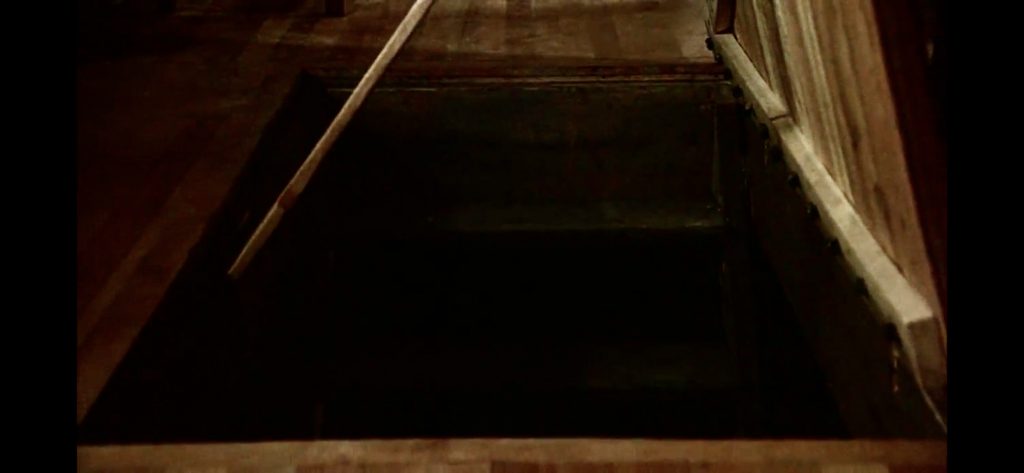
None the less, as this movie begins, for a 13-year-old, Rynn seems very independent. She pays her rent. She does her banking. She takes care of her bills. She buys her food. She even studies Hebrew in her spare time. She seems very reasonable, rational, and logical. Rynn doesn’t need anyone.
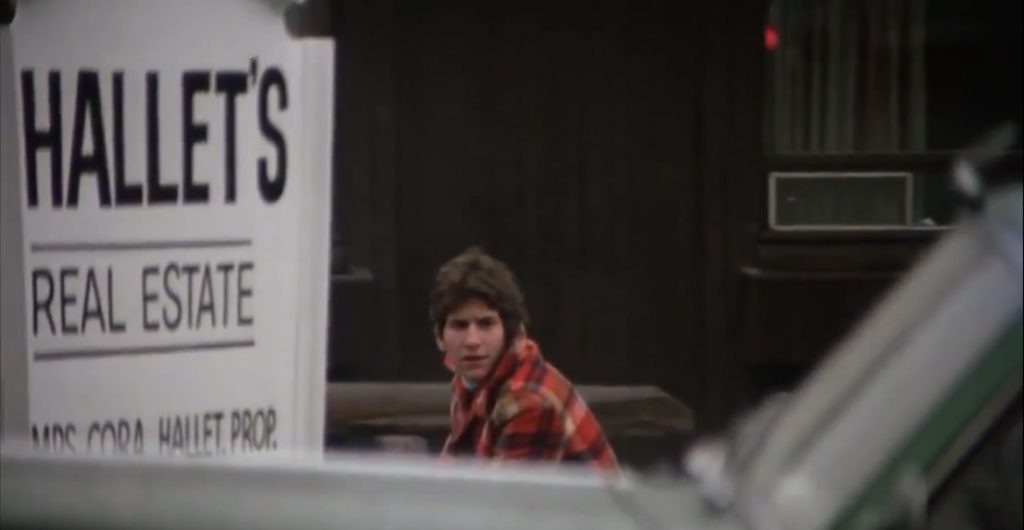
Nevertheless, Rynn has constant problems with a timeless problem: nosey realtors. First, a trespassing realtor won’t stay out of her home, even though Cora warns Rynn to not let her son in the home. Also, the uninvited creep, Cora’s son, keeps coming over. In the 70s, tenants had little rights, which continues even today.

That being said, the movie also suggests child themes, which were coming to light in the 1970s. Such themes include child abuse, neglect, and abandonment. These child themes were present in this movie.
Also, the movie dealt with criminal children. For example, Rynn did many criminal acts in this movie. That being said, today, there are many children serving indefinite sentences in prisons. This movie touched on the issue of criminal children.
When it comes to dark themes, this movie adds family abuse, which was mainly hidden in the 1970s. For example, where is Rynn’s father, mother, or even the extended family? Certainly, the family wasn’t watching her, which can be labelled neglect. Perhaps, this was the goal of the movie to bring this new issue to the forefront in the seventies.
In addition to family abuse, this movie suggests generational cycles of abuse. First, you see the emotionally abusive Cora Hallet (the local cougar) and Frank Hallet (Cora’s son and local sex offender). Also, you see a promiscuous Rynn and Mario ages apart. This movie suggests cycles of abuse across generations.
As with any cycle of abuse, the movie could suggest a possible hidden incestuous relationship between Rynn and her father. In one scene, the character of the father is called into question when Mario asks Rynn about what kind of a father leaves a child alone. Later, in another scene, Rynn becomes uncomfortable when Sheen asks Mario why he doesn’t like girls his own age. At this point, Rynn quickly changes the topic between Sheen, Mario, and herself, as if deeply disturbed about a sexual relationship with an older person. That being said, we only hear Rynn’s positive story about her father, but the other half of the story is missing, which could be an incestuous relationship between Rynn and her father.
Because there was generational abuse in the family, this movie touched on the issue of youth promiscuity. Rynn is only 13 years old. She has a boyfriend, and they are sexually active. Youth promiscuity was a new issue in the 1970s.
Moreover, this movie suggests youth criminality. In one scene, we see Rynn hiding evidence like an umbrella, a car, and a body. She does these criminal acts with little emotion.
As well, this movie looks at the issue of youth sex offenders, which was swept under the rug by the law in the 1970s. For example, a police officer, officer Miglioriti, makes a comment to his nephew, Mario, saying: “Don’t do anything I wouldn’t do.” Here, the officer looks the other way while a minor and a young adult drink wine alone.
Obviously, this movie suggests child exploitation. Sheen is exploiting a child, who is a minor who can’t agree to consent. Also, Mario is exploiting a child. This movie highlights child exploitation, which is a criminal act when done to a minor.
That being said, in 1982, five years after this movie, New York v. Ferber banned child exploitation. In Ferber, the US Supreme Court said the state had an interest in banning any material to protect children from child exploitation. No more would states allow the exploitation of children under 16.
It should be said that this movie pushes the limits on child exploitation. In one scene, Rynn can be seen with Mario in an nude scene. However, the producers of this movie used a body double when it came to this part of the movie involving a minor.
While this film deals with serious social issues of the day, this movie is funny, too, because of a trespassing Mrs. Cora Hallet who is the cheeky realtor for the home owner. Hallet rents the house to Rynn’s dad. Hallet drops by whenever she wants. She picks the grapes without permission, which, technically, is stealing private property of the Jacobs, since they rent and have property rights. Hallet moves furniture around in the house without being invited in as a guest of the Jacobs. Plus, Hallet has a delusional romantic interest in Rynn’s absent dad. You wonder about tenant’s rights and the sanity of Cora Hallet in this movie.
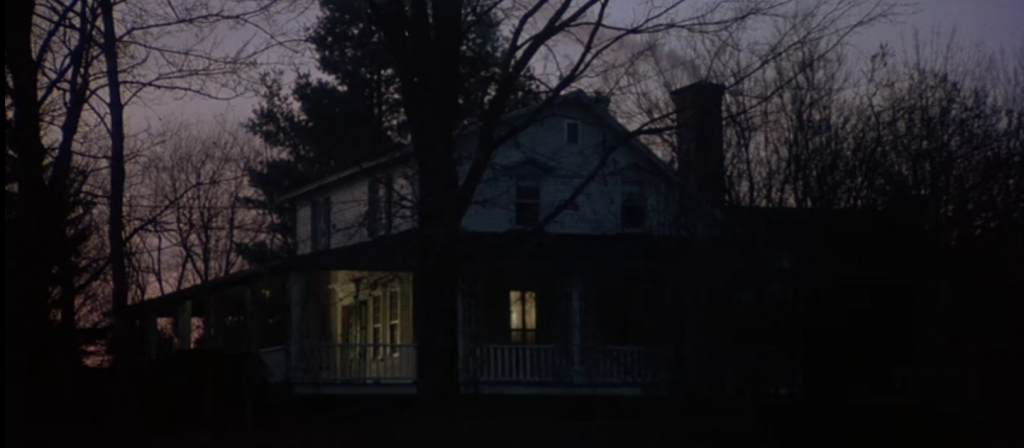
The emotionally abusive Cora Hallet likes to tell lies. For example, she lies to Rynn about being a school board member, saying: “You’re 13. Why aren’t you in school? Thirteen means you should be in school. Look at me when I speak to you. So happens I am a member of the school board. We meet on Monday. They’ll be very interested in your case.”
However, the Registry Office secretary contradicts Hallet when Runn does her due dilligence.. The officer says: “Twice monthly. No, the board meets again a week from Thursday. These are the bylaws. And if you need any further help.”
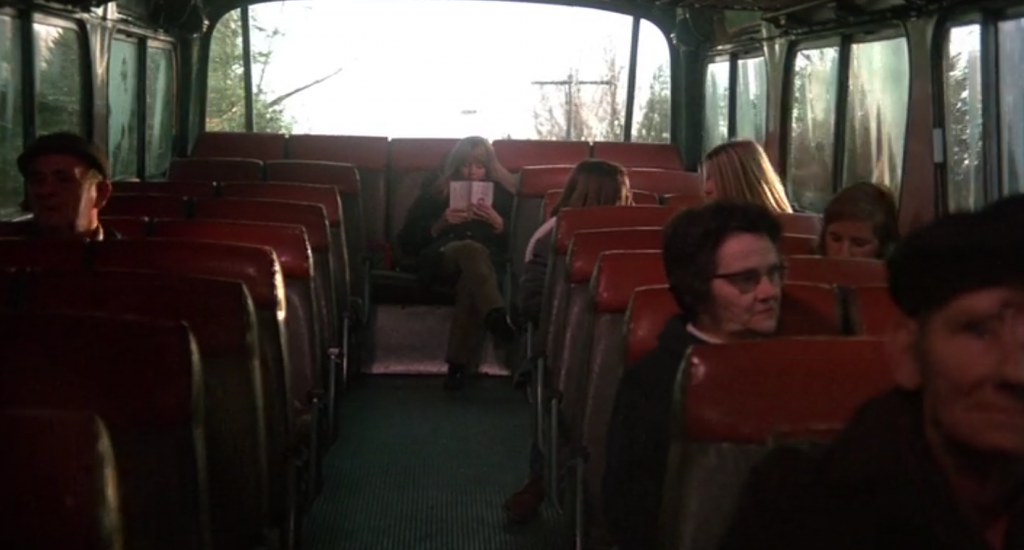
Later, Hallet continues to lie to Rynn about being a school board member. She says: “Hello. I may come in. We had a meeting at the school board this morning. I spoke to them about you. I must say, when they heard about your case, they were very interested. Very interested in your case. You don’t want to hear what they said?” However, Rynn, having done her due dilligence, knows Hallet is lying and plays it cool.
In one of the scenes, Rynn comes clean about killing her mother.
“By lying to my father’s publisher, she walked right in. Finger nails as red as ever. My God, the nerve of her. She sat right over there. Smoked her gold tipped cigarettes. Went on and on about the pollution in the Mediterranean. And how marvelous it would be to stay here. I hated myself for doing it, but I actually acted happy to see her. She asked me for a drink. But I lied and told her we didn’t have any. I gave her some tea with the same almond biscuits. My father had given me a small bottle containing some white powder. He said if she should arrive, I should put it in her tea. Calm her, make her less aggressive… No, not until after. I looked it up based on it’s properties: potassium cyanide. My father meant what he said about doing anything you have to do to survive. I can still see her red nails holding about that cup. After a few minutes, she said the tea tasted of almonds.
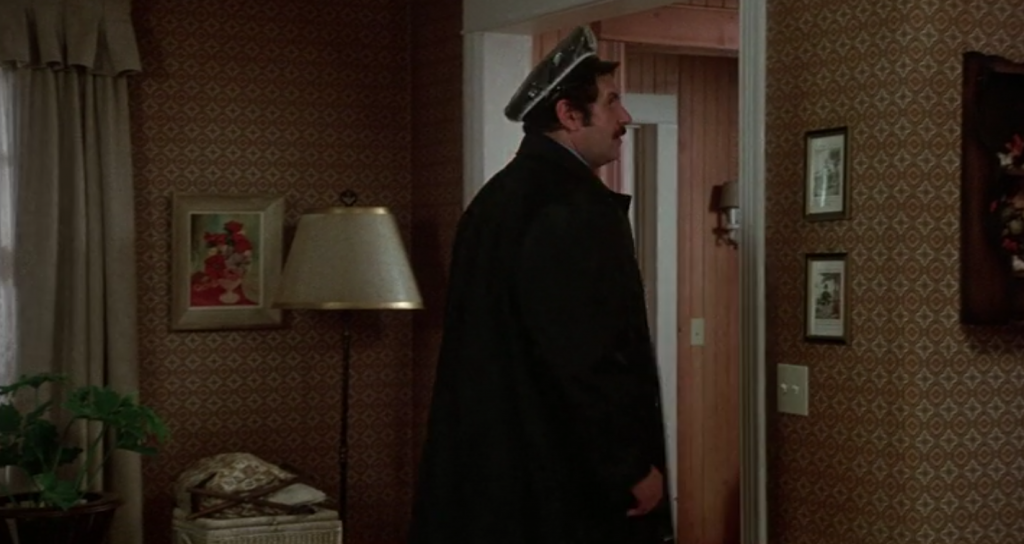
Interestingly, Mario had a good question for Rynn. He says, “How did your father send that letter? Since when do fathers let kids do what they want?” Logically, Mario knows Rynn’s story doesn’t fit when Rynn remains quiet about her father; however, Mario has a romantic interest in Rynn, so Mario doesn’t further pursue his questions about Rynn and her father.
Toward the end of the movie, offcer Miglioriti returns to inspect tracks at Ryn’s house while dropping bad news on Rynn. Miglioriti says, “You know, I can’t figure you out at all. You haven’t even asked me about Mario. He’s in the hospital. Pneumonia. Well, without the antibiotics, he would of died.” Officer Miglioriti is catching on that something is wrong about Rynn
Incidentally, in an early scene, Miglioriti doesn’t believe Rynn’s story about her missing dad. He searches around Rynn’s house while she goes for money to pay for a raffle ticket. We learn he suspects something, but he doesn’t have probable cause for a search warrant; however, he snoops around while she’s upstairs for anything in plain view. Nonetheless, he doesn’t find anything suspicious.
A discreet Rynn is what triggers alarm bells for Officer Miglioriti. “I been here three times. And each time I notice that how good you are with words. The way you speak. Very careful. You’re too damn careful.”
One thing about this movie it highlights a cop with a bad reputation. For instance officer Miglioriti likes to use his patrol car to pick up women. Both Mario and Rynn make comments about him liking women “pumped up.”
Rynn jumps in about Officer Miglioriti’s sex life. Rynn laughs, “Your pumped up lady waiting for you?
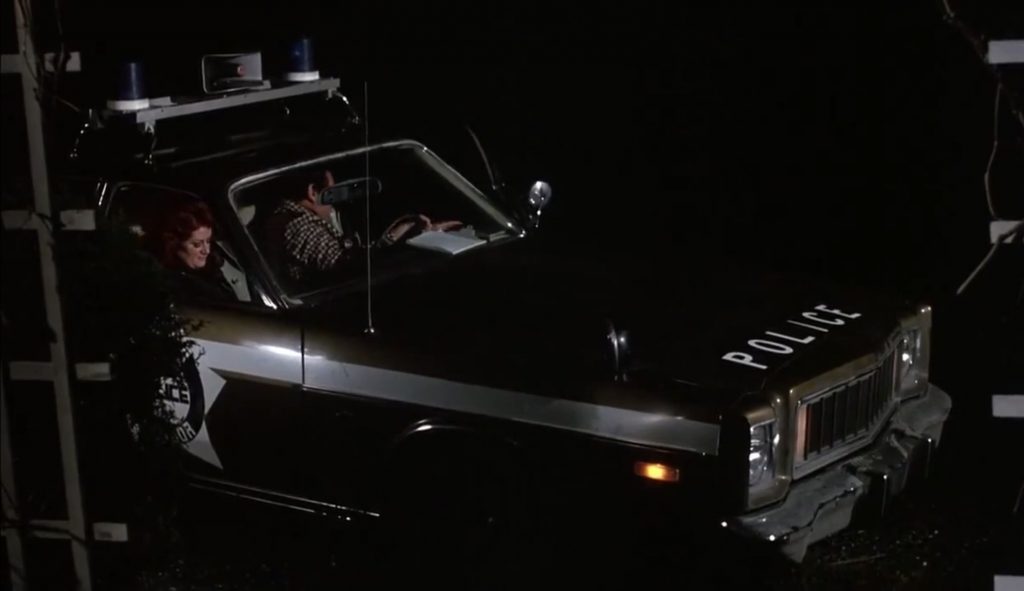
Mario cracks more jokes about Officer Miglioriti’s sexual immorality. “Yeah, it’s ok. You’re off duty. Hey, where’s your playmate of the week? He likes the ones who look like they been blown up with a bicycle pump.”
Unintentionally, the movie chronicles a history of sexual crimes in the Miglioriti family across generations. First, the film mentions officer Miglioriti had an affair with Frank Hallet’s wife, which is an actual criminal crime (adultery and fornication) to this day in many state law books- not to mention, Miglioriti was running around with other women in the community. As well, Mario, officer Miglioriti’s nephew, is dating Rynn, a minor, which is statutory rape in many states. The Miglioriti’s seem to be a family of sexual offenders.
What’s strange, officer Miglioriti wants respect from Mario and Rynn. This request to be respected garners laughter from Mario who laughs to Rynn, saying, “He wants respect for getting action in his car?” Officer Miglioriti wants to project an image of being a morally clean person who deserves respect, but Rynn and Mario know the truth about Officer Miglioriti’s character.
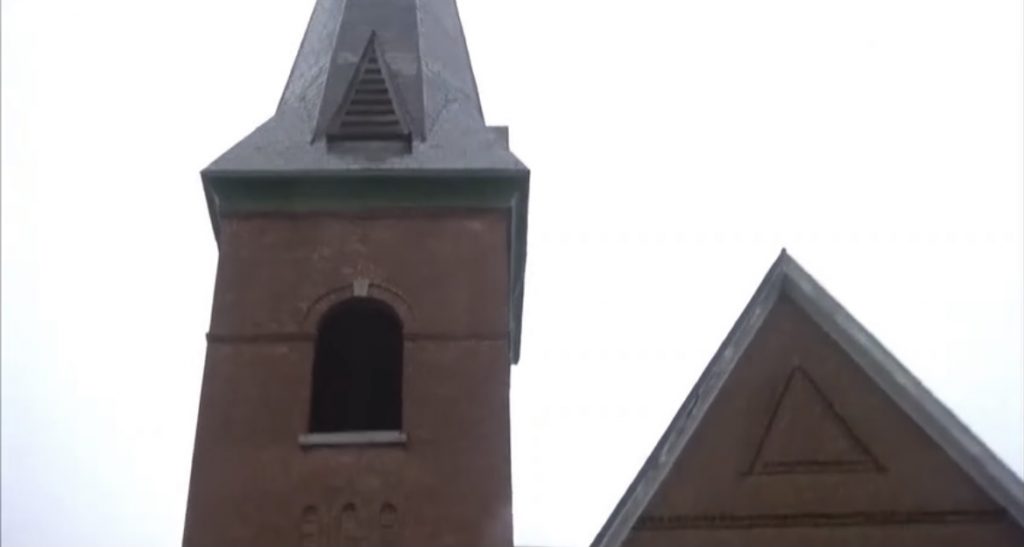
The movie portrays Mario as a church goer. In one scene, he attends a church with his family. However, after church, he runs off to be with his young lover, Rynn.
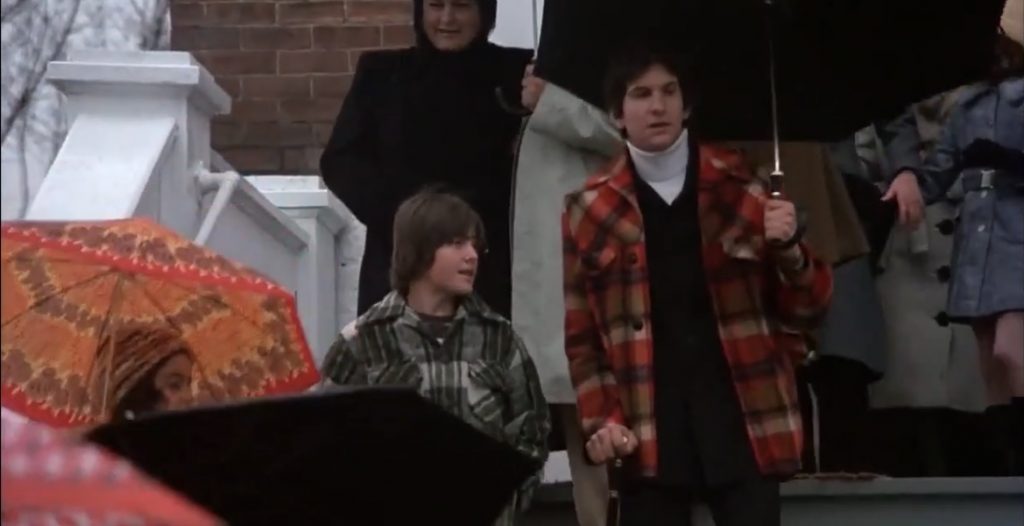
On the other hand, Rynn isn’t a very religious person. In a scene, Mario asks Rynn if she believes in God, she says, “It would be nice. I don’t know.”
In fact, Rynn holds evolutionist ideas. “Rynn says to officer Miglioriti: “Birds are reptiles from way back.”
It’s only toward the end of the movie that we learn Rynn understands she can’t survive alone like her dad wanted. “Mario. I love you. My father worked it all out. How I would live. What I would do. But it can’t work. It can’t work without you. He was wrong.”
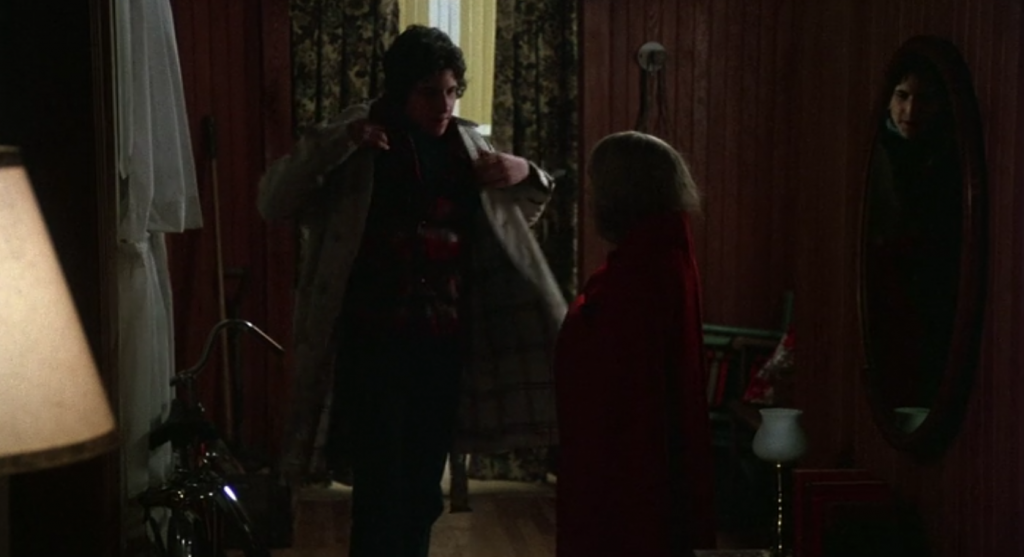
At the end of the movie, Rynn does a magic trick of her very own by killing the town creep, Sheen. When he’s not looking, she puts cyanide on cookies. Later, when Sheen suspects a poisoned cup of tea, he misses the poisoned cookies. Turns out Rynn is the real magician in this movie.
Notably, Rynn was a serial killer in the book. In the book, Rynn closes the basement door and feeds gas to Mrs. Cora Hallet. Mrs. Cora Hallet dies by Rynn’s hand in the novel, which the movie was based on.
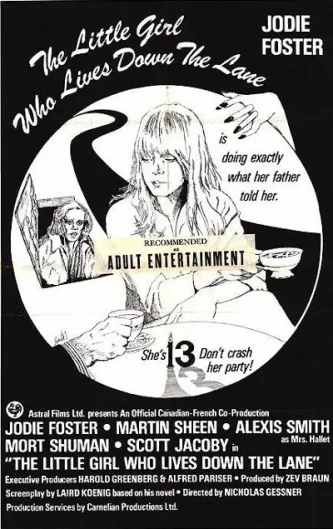
Racism is exposed in this movie. In one scene, a racist Cora Hallet tells Rynn, “Hebrew? I should think French would be more help. Or Italian. Lord knows there enough of them around these days to speak it with. So many outsiders in the village these days.”
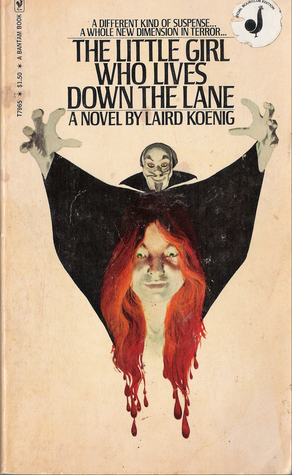
Cora Hallet makes more racists remarks to Rynn in regards to Jewish people. “Not a glass of that thick sweet wine you people use in your religious rituals… And brilliant as so many of your people are.”
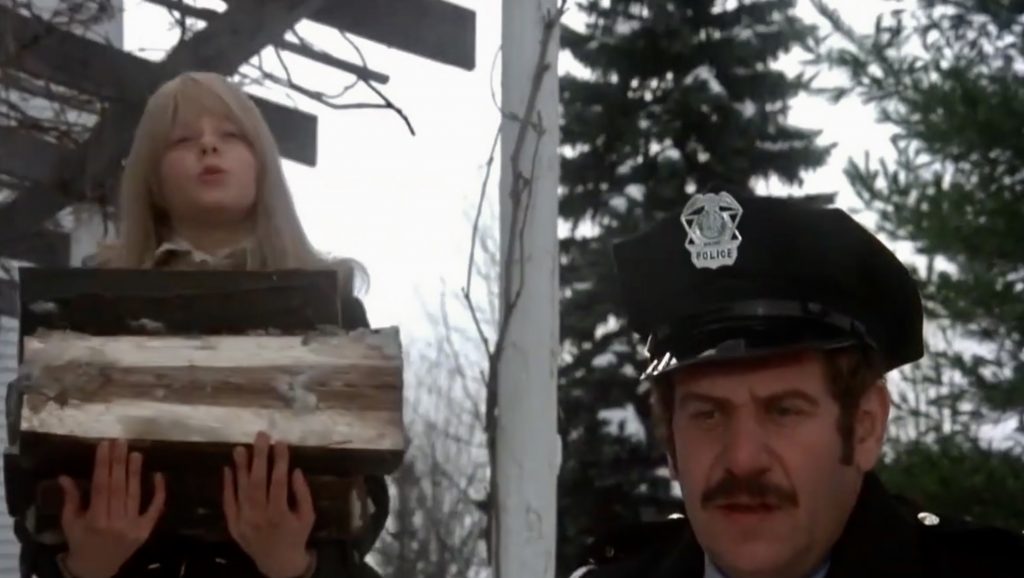
Cora Hallet’s son, Frank Hallet, makes racist remarks, too, when dealing with Mario Podesda. Frank tells Mario, yelling, “Hit the road whop,” after a brief fight at Rynn’s home.
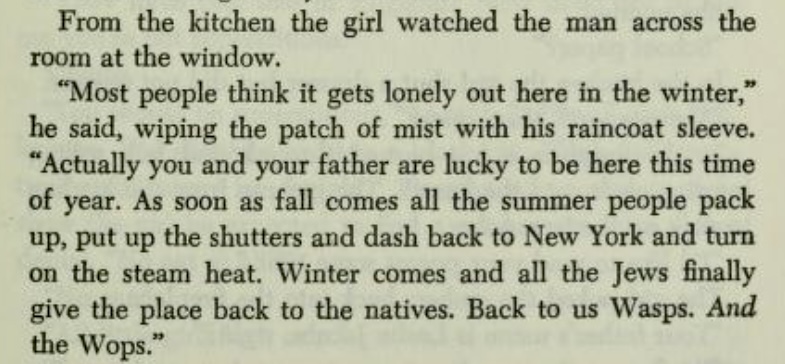
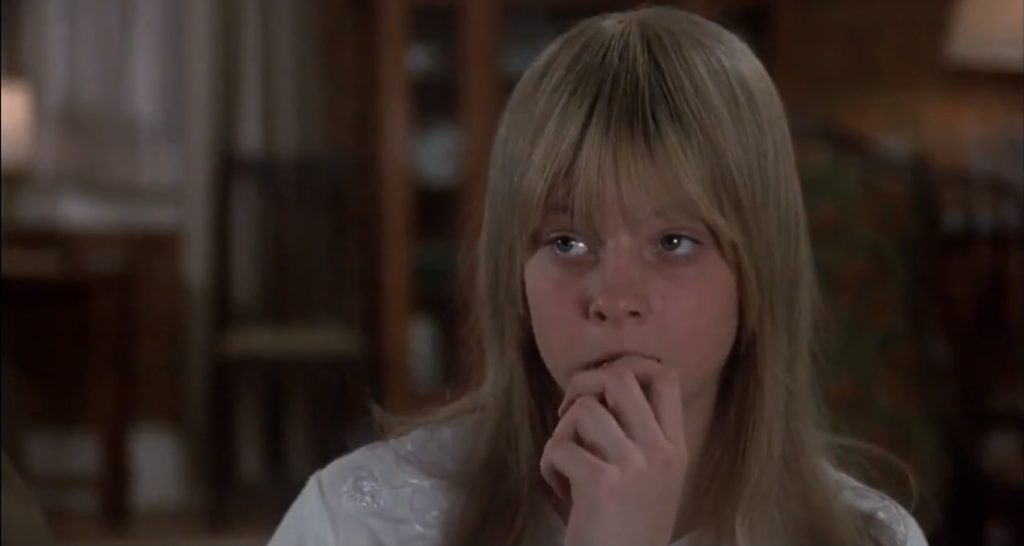
At the near end of the film, Rynn makes a chilling comment to an unsuspecting officer Miglioriti as he looks at faded footprints in her backyard. “I love detective stories. You read Agatha Christie? You know all her murders take place in the most beautiful old English country houses.” It’s a chilling statement because Rynn makes it when Officer Miglioriti is kneeling over the spot where Rynn buried her mother, Cora Hallet, and perhaps her dad.
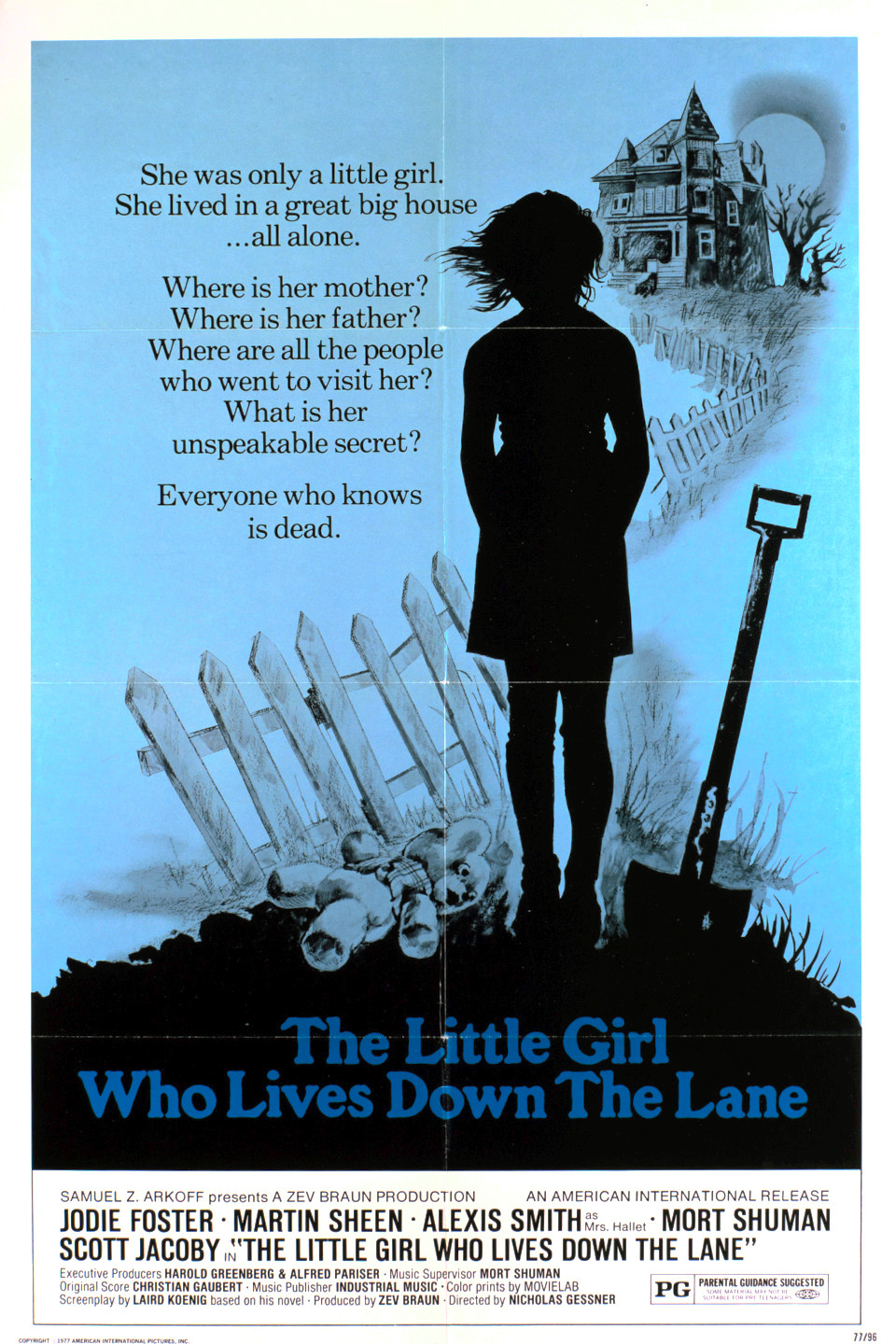
Overall, I rate this movie five out of five stars because it was scary, mysterious, and creepy; additionally, it touched on many new social issues of the 70s, which were mainly hidden in society. Plus, it makes you wonder what could be going on down the street, so this movie may be worth a watch.